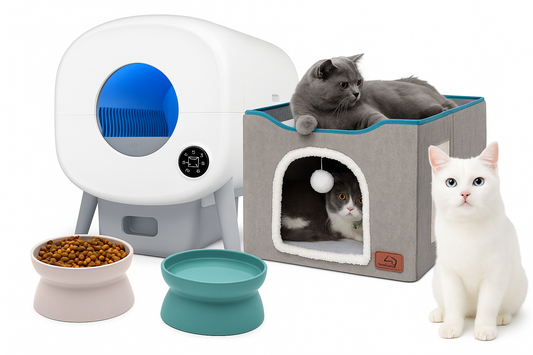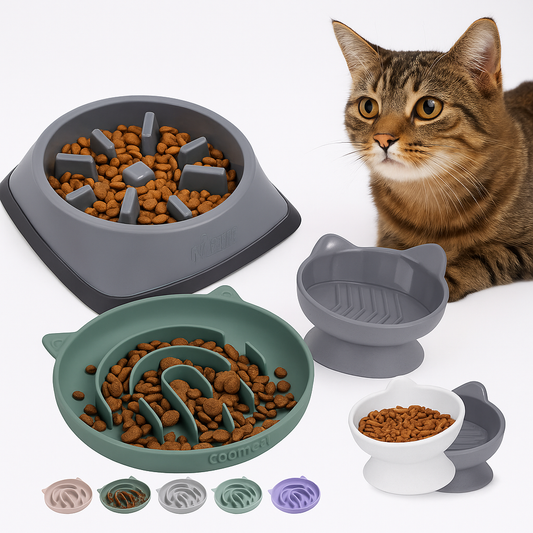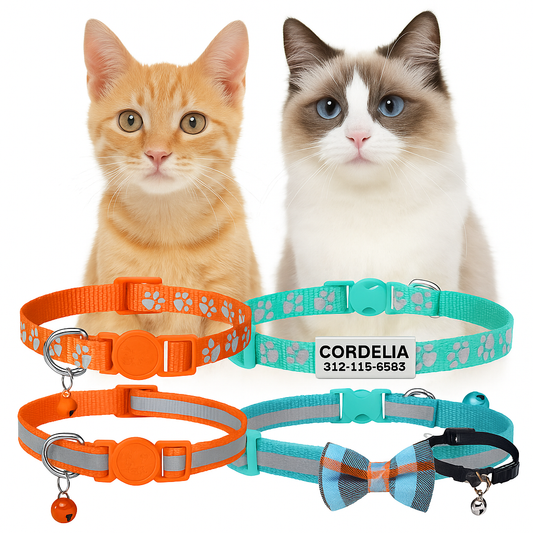
The Oldest Cat Ever Lived to Be HOW Old?
If you think your 17-year-old furball is a wise old feline sage, you’re not wrong—but someone else’s cat beat yours by decades. Yep, decades.
The oldest cat to ever live, according to Guinness World Records, was a tabby from Austin, Texas named Creme Puff. She lived to be 38 years and 3 days old. That’s not a typo. Thirty-eight. In human years, that’s like your great-great-grandma who still drives stick and makes everything from scratch.
So how did Creme Puff defy the universe and live nearly double the average cat lifespan? And what can you do to help your own kitty stick around for as long as possible?
Let’s dive into the legendary life of this super-senior, explore how the average cat stacks up, and dig into what it really takes to keep your whiskered roommate healthy for the long haul.
Creme Puff: The Grand Dame of Cats

Source: https://factrepublic.com/facts/31331/
Creme Puff was born on August 3, 1967, and lived until August 6, 2005. Her owner, Jake Perry, might just be the cat whisperer of our time. Why? Because this guy didn’t just have one record-breaking cat. Another one of his cats, Granpa Rexs Allen, lived to be 34. What are the odds?
Perry swore by a daily routine that included:
- Dry cat food (nothing fancy)
- Cooked eggs
- Broccoli
- Turkey bacon
- An eyedropper of red wine every other day
...Yes, you read that correctly: red wine. Perry claimed it helped improve circulation and reduce stress. (Spoiler alert: veterinarians don’t recommend this, so please don’t add “wine sommelier” to your cat’s resume.)
His cats also lived in a stimulating environment filled with toys, hidden tunnels, and other cats to socialize with. Perry even set up a home theater just for them, playing nature documentaries on loop.
In short, Creme Puff’s life was anything but ordinary.
What’s the Average Cat Lifespan?
Most domestic cats live to be 12 to 18 years old. With excellent care, indoor cats can stretch that into their early 20s. The oldest cats on record are outliers—very few make it past 30.
Here’s a rough breakdown of feline aging:
- Kitten: 0–1 year
- Young Adult: 1–6 years
- Mature Adult: 7–10 years
- Senior: 11–14 years
- Super Senior: 15+ years
So, when your cat hits 15, throw them a retirement party. They've earned it.
Outdoor cats, on the other hand, often have much shorter lifespans—closer to 5–7 years—thanks to cars, predators, disease, and all the other chaos of the great outdoors.
Why Do Some Cats Live Longer Than Others?
Good genetics help. But that’s not the whole story. The secret to a long, healthy cat life lies in a mix of care, environment, and yes—luck.
Here are the biggest factors that influence cat lifespan:
1. Indoor vs. Outdoor Life
Indoor cats live longer, period. They avoid most accidents and contagious diseases.
2. Nutrition
Feeding your cat a balanced, species-appropriate diet is key. Avoid foods high in carbs and fillers. Ask your vet for a recommendation that suits your cat’s age and health.
3. Vet Care
Annual checkups can catch issues early. Dental cleanings, bloodwork, vaccines, and parasite prevention all play a role.
4. Weight Management
Obesity shortens lives. It increases the risk of diabetes, heart disease, and joint problems. Keep your cat lean and active.
5. Mental Stimulation
Cats get bored, and bored cats get sick (or destructive). Play with them daily. Rotate their toys. Provide scratching posts, climbing trees, and window views.
6. Spaying/Neutering
Fixed cats tend to live longer. They’re less likely to roam, fight, or get certain cancers.
Should You Try to Copy Creme Puff’s Diet?
Probably not.
While it’s fun to marvel at the record-breaking oldest cat age, Perry’s wine-and-broccoli approach hasn’t been scientifically tested. In fact, alcohol is toxic to cats. The same goes for onions, garlic, chocolate, and a long list of other human foods that your cat’s body just isn’t built to handle.
Instead of experimenting with vintage reds and side dishes, focus on what we do know: cats thrive on species-appropriate, nutrient-rich food. If you're not sure what to feed your feline, check out our guide “Cat Food Ingredients Decoded: What to Look For and Avoid”. It breaks down the good, the bad, and the sneaky when it comes to pet food labels—so you can confidently pick meals that actually support your cat’s long-term health.
The bottom line? What matters more than gimmicks is consistency and proper nutrition. Creme Puff might have been a miracle, but most cats benefit more from common sense and clean ingredients than novelty diets.
What We Can Learn From Senior Cats

Senior cats (11 years and up) have different needs than their younger counterparts. As they age, they may need:
- Joint supplements (like glucosamine or fish oil)
- Special diets for kidney health or weight management
- More frequent vet visits (every 6 months is ideal)
- Softer beds and easy-access litter boxes
But don't be fooled—many senior cats are still full of personality, love, and mischief. You just have to meet them where they are.
How to Help Your Cat Live Longer: Real-World Tips
You can’t guarantee your cat will make it to 38, but you can stack the deck in their favor:
✔ Keep Them Indoors (Or Supervised Outdoors)
Give them a safe space. Screened porches, “catios,” and leash walks are great options.
✔ Feed a High-Quality Diet
Ask your vet about the best food for your cat’s life stage. Avoid junky fillers and low-meat foods.
✔ Regular Checkups
Don't skip the vet—even if your cat “seems fine.” Cats are experts at hiding pain.
✔ Keep Their Mind and Body Active
Playtime matters. Ten minutes a day of focused play can boost mood and burn calories.
✔ Hydration, Hydration, Hydration
Cats don’t drink much water naturally. Offer wet food, water fountains, and multiple bowls around your home.
✔ Love and Attention
A cat who feels safe, secure, and loved is a cat who thrives. You’re not just their food source—you’re their whole world.
Wait, Are There Other Cats Who’ve Lived Crazy Long?
Yes! Creme Puff isn’t alone in the feline record books. Here are a few other super seniors:
- Baby (U.S.) – Lived to 38, though unverified
- Granpa Rexs Allen (also owned by Jake Perry) – 34 years old
- Puss (U.K.) – Born in 1903, allegedly lived to 36
- Rubble (U.K.) – Passed away in 2020 at the age of 31
While not all of these ages have ironclad documentation, they show what’s possible.
A Legacy That Lives On
Creme Puff’s story gives cat lovers hope. She shattered every expectation. She’s more than just a Guinness Record holder—she’s a reminder that animals can surprise us with their resilience and love for life.
If your cat is already 12, 15, or 18 years old, celebrate that. You're doing something right. Age is just a number when there’s still purring, lap naps, and sunbeam snoozes.
Final Paws for Thought
Life with a cat is never long enough—but with the right care, attention, and a little luck, it can be longer than you think.
Creme Puff’s 38-year reign is a marvel, and maybe even a mystery, but it’s also a goalpost—a reminder that our feline friends are capable of incredible longevity. So spoil your senior cat. Feed them well. Keep them safe. Laugh at their weird quirks.
And who knows? Maybe one day your cat will be the next record-breaker.



